#Johanna Spyri
Explore tagged Tumblr posts
Text

Johanna Spyri, Heidi
2K notes
·
View notes
Text


The Quiet Girl (2022) by Colm Bairéad
Book title: Heidi (1880) by Johanna Spyri
34 notes
·
View notes
Text
#kit���s book club#the great gatsby#f scott fitzgerald#a study in scarlet#arthur conan doyle#the metamorphosis#franz kafka#journey to the center of the earth#jules verne#heidi#johanna spyri#through the looking glass#lewis carroll#anne of green gables#l m montgomery
20 notes
·
View notes
Text
“The blossom month had passed, and June, with the long, long days had come. Quantities of flowers were blooming everywhere, filling the air with perfume.”
Johanna Spyri, Heidi
25 notes
·
View notes
Text
#the hobbit#aogg#lww#heidi#the secret garden#winnie the pooh#peter pan#the wind in the willows#the jungle book#alice in wonderland#studio ghibli#anne of green gables#chronicles of narnia#jrr tolkien#jrrt#lucy maud montgomery#lm montgomery#johanna spyri#frances hodgson burnett#aa milne#jm barrie#kenneth grahame#rudyard kipling#lewis carroll
39 notes
·
View notes
Text




50 Years
HEIDI
Season 1 Episode 34: To my dear Alms (Heidi kehrt zurück)
#heidi#anime#zeichentrick#tv serie#tv series#1974#zuijo enterprise#animated gif#bodie r.hart#japanese anime#japan#johanna spyri#heartbreak#heimweh#zdf#zeichentrickserie#to my dear alms#heidi kehrt zurück#classics#isao takahata
11 notes
·
View notes
Text
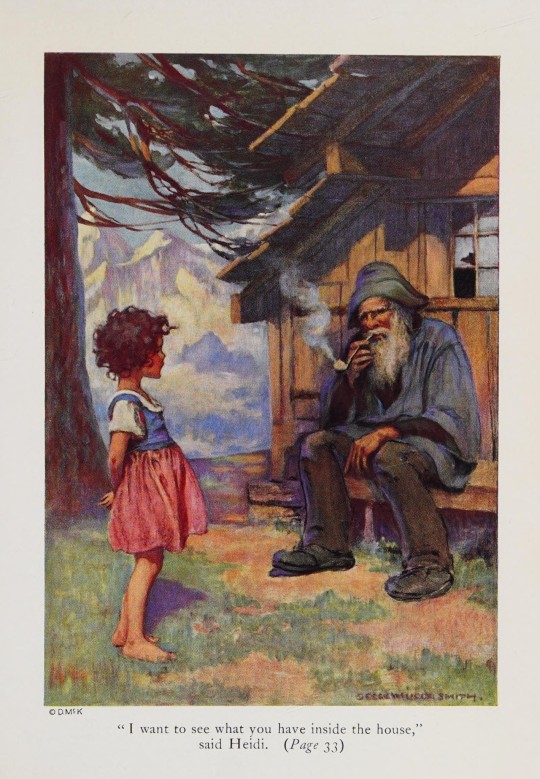
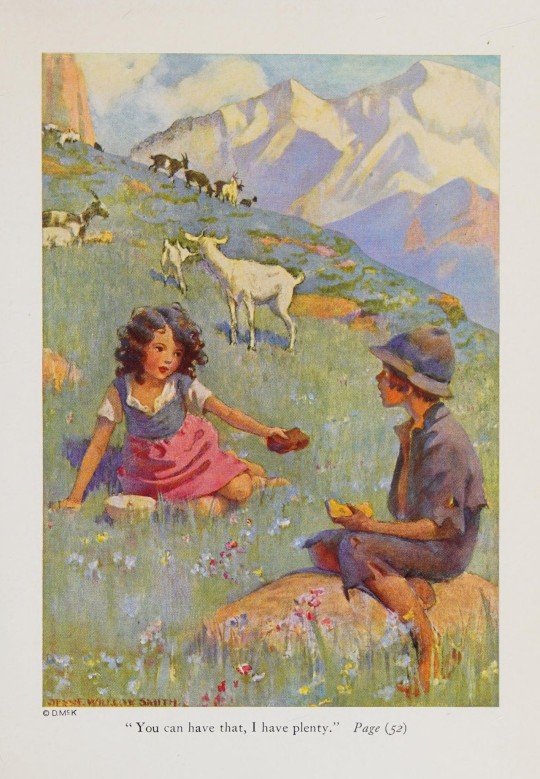
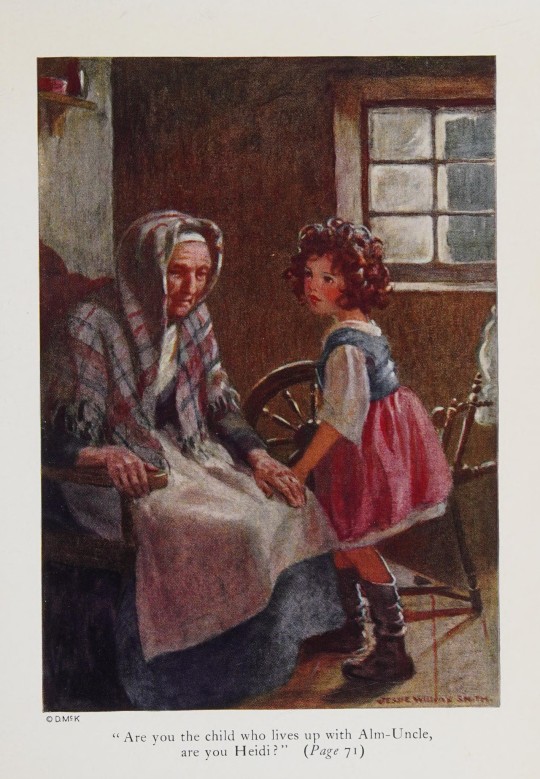
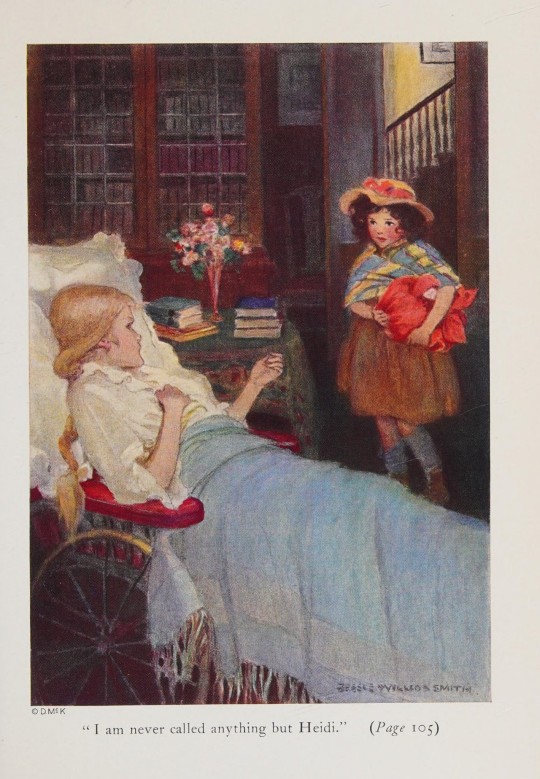

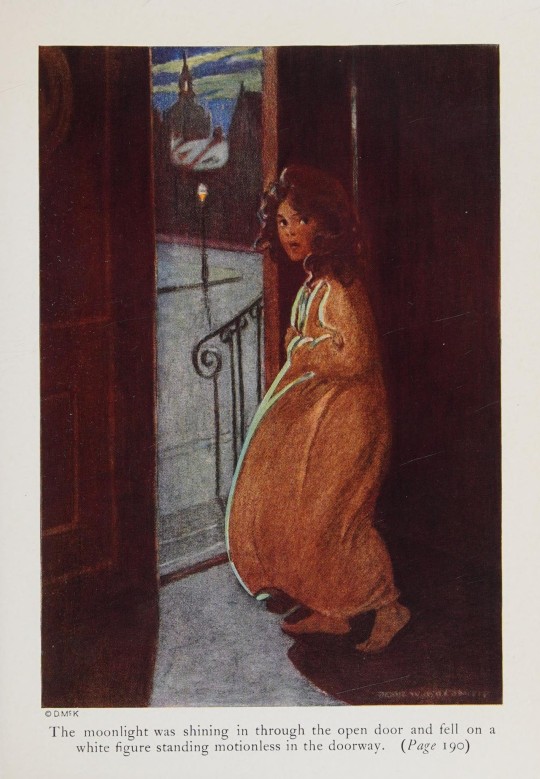

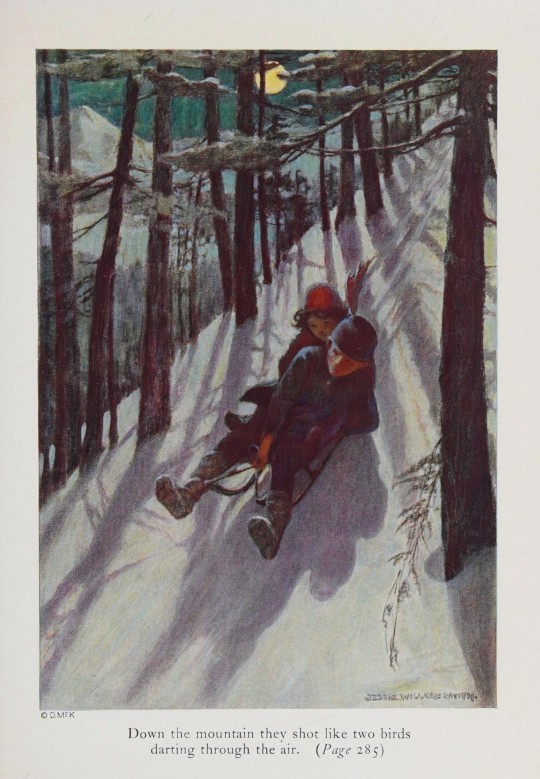


“Heidi” illustration by Jessie Willcox Smith (1863-1935), 1922
73 notes
·
View notes
Text

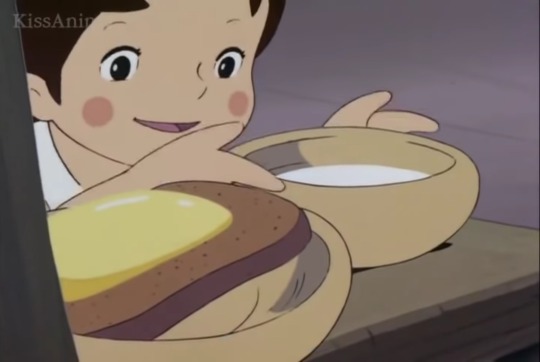
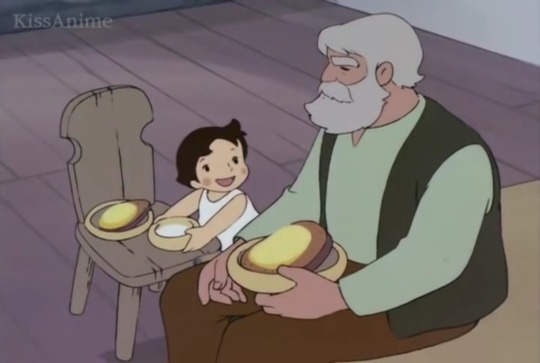


Heidi eating toasted cheese.
Scene from episode 2 of "Heidi" anime.
#heidi#alps no shoujo heidi#heidi girl of the alps#cheese#bread#milk#hayao miyazaki#isao takahata#johanna spyri#anime#food
66 notes
·
View notes
Text
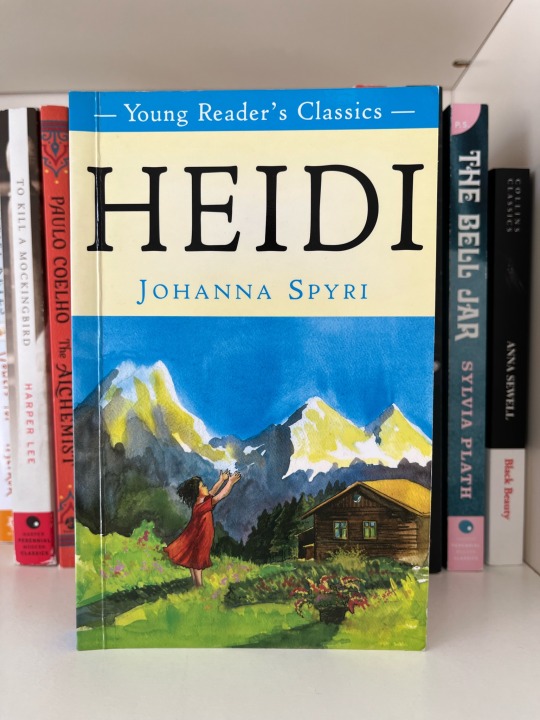
Heidi had never felt so happy in her life. She drank in the golden sunlight, the fresh air, the sweet smell of the flowers, and wished for nothing better than to remain there forever.
#reading#books read in 2024#bookblr#books#book photography#book blog#bibliophile#books reading#books and reading#heidi#johanna spyri#swiss#swiss alps#heartwarming#childrens books#heidi and grandfather#found family#sebastian was hilarious#i wouldve loved this as a kid#i appreciate it#now for what it is#spring reading#the setting was beautiful#i hope i get to go one day#switzerland#frankfurt#review#three stars#april reads
7 notes
·
View notes
Text
2024 Reading - August
There I was at the beginning of the month all worried about my potential page count for August, and then I went and read well beyond that. It's fine. I'm just a baby. The good news is that I seem to have caught my reading stride again--I actually wanted to spend my evenings reading a physical book, and didn't feel like reading was a slog. And even though I'm only halfway toward my original reading goal for the year, I've made good progress through my digital TBR.
Total books: 9 | New reads: 8 | 2024 TBR completed: 1 (0 DNF) / 27/36 total | 2024 Reading Goal: 53/100
July | September
potential reading list from August 1st
First of all, please admire this graph:

I haven't read this many pages in a month in like two years. (This does count pages and hours I read for books I ultimately DNF.)
Moving on.
#1 - The Unselected Journals of Emma M. Lion, Vol 1 by Beth Brower - 5/5 stars
A quick, charming read with surprising depth. I actually cried at one point. And I definitely want to read more. It’s a pity each volume is so small and that none are available through any library in the state.
Note from end-of-the-month Phoebe: I bought Volume 2. And another book by the same author.
#2 - Jonathan Strange & Mr Norrell by Susanna Clarke - 5/5 stars ('24 TBR)
Expertly crafted historical setting effortlessly blended with the dangerously fantastical. Rich, complex characters who are people of their time. A totally engrossing writing style with asides and footnotes and sharp dialogue that left me laughing with delight. So many tiny elements that combined to make up exactly the sort of story I crave. I wasn't expecting to be enthralled, but I was from the first page. Maybe it rewired my brain a little bit.
I will grant it's not for everyone, but it was PERFECT for me. Just don't ask me what the plot is.
Reasons you may not like it: 1) It's huge and a bit of a time investment. 2) It is largely character-driven and, while well-paced, doesn't have a lot of external pressure to keep the story exciting. 3) It's somewhat verbose, in a Tolkien sort of way. 4) Something of an open ending (which, weirdly, didn't bother me?). 5) As the magic tips from human to fairy, it develops a dark and occult flavor. This is nice for people who like their fairies to remain distinctly wicked within the narrative (rather than roguishly morally gray), but there are decidedly dark elements. I tried to watch the show a few years ago and didn't make it through the first episode, and as I recall it was because the fairies came off a tad too dark for me. Somehow it was better on the page.
#3 - Escape from Camp 14: One Man’s Remarkable Odyssey from North Korea to Freedom in the West by Blaine Harden - 4/5 stars
This is both the biography of a man who escaped the North Korean prison camp where he was born, and also a biography of North Korea itself over the past 50-odd years. Sparse and somewhat stilted, full of facts and figures, it reads more like an article than a story. I'll say it's an important story, despite the surrounding controversy, but the writing style didn't do it any favors.
Note regarding the peculiar controversy surrounding this book: A few years after the book was published, Shin Dong-hyuk contacted Harden and revised his story as told here. The base details remained the same, but timelines and locations had changed. Yeonmi Park faced the same controversy following the publication of her memoir of her childhood in North Korea (In Order to Live; which, weirdly, I read in August of last year), which to me says less about the veracity at the heart of both individuals' histories and more about how trauma, in particular that brought about by political violence, can impact emotions and memory. If you're interested in reading this book, definitely check out Harden's updated forward examining Shin's altered account. Harden himself repeatedly acknowledges Shin as "an unreliable narrator of his own life".
More like this: "In Order to Live" by Yeonmi Park with Maryanne Vollers; "A Long Way Gone" by Ishmael Beah; "Infidel" by Ayaan Hirsi Ali.
#4 - Time Travelling with a Hamster by Ross Welford - 4/5 stars (audio)
If you couldn't tell, I'm desperately trying to fill in some of the missing letters for my second year of a self-imposed alphabet titles challenge. This is my fifth attempt at a "T". Attempts three and four are below in the DNFs. I decided to bank on an extreme change of pace with this one.
A solid middle grade adventure, and one I'll definitely recommend in future. Fun and unpredictable and my head hurts, because time travel always does that to me. Ridiculously short chapters, for some reason.
More like this: A bit like "A Wrinkle in Time", a bit like "Meet the Robinsons" (the movie; haven't read the books).
#5 - The Empty Grave by Jonathan Stroud - 4/5 stars
I DNF'd this last year after trying and failing for a month to get into it. I had definitely been in the perfect mood when I started the series last year, but for some reason The Empty Grave gave me no end of trouble, and I gave it up about a quarter of the way through.
Not so this time. This time it took me all of four days to finish.
Thankfully this follows the tradition of refreshing the reader's memory of previous events in the series, because I'd forgotten some of the pertinent details. Either because of my foggy memory or because of something else in the story, the ending fell kind of flat for me, like it was missing an element to deliver a good emotional conclusion, or like it didn’t fully satisfy the stakes set up at the start of the book. I consider this series more young adult than middle grade, but the way it wrapped up definitely felt middle grade in style.
Still a solid ending for sure, just a little confusing.
#6 - A Swiftly Tilting Planet by Madeleine L'Engle - 5/5 stars (reread) - 50th read of the year!
Comfort book my belovéd.
#7 - The Swamp Fox: How Francis Marion Saved the American Revolution by John Oller - 4/5 stars (audio)
Francis Marion is one of my dad's favorite figures of the Revolutionary War, and man, I can see why.
The writing itself is somewhat dry, crammed full of names and dates technical details of battles; but Oller manages to weave a solid narrative as he combs through the legends surrounding Marion and picks out the facts.
More like this: "Lion of Liberty" by Harlow Giles Unger.
#8 - Heidi by Johanna Spyri - 4/5 stars (audio)
"Heidi" was one of the movies I watched on repeat as a kid. Not the Shirley Temple version, but the 1968 made-for-TV version that apparently took some liberties with the plot. (But according to Wikipedia, it's most memorable for interrupting a football game for its premier.)
The book is a cozy classic children's book, plain and simple. It feels a bit like The Secret Garden with an orphan coming to an unfamiliar place and thriving there (plus helping an invalid thrive as well); and a bit like L.M. Montgomery pushing all of us to get outside and breathe some fresh air.
#9 - The King of Elfland's Daughter by Lord Dunsany - 4/5 stars (audio)
Absolutely gorgeous.
You might like this is you like: The Ballad of the White Horse by G.K. Chesterton; or the narrative style of the legends told by characters in the Queen's Thief series.
Useless fun fact: Lord Dunsany's name was Edward John Moreton Drax Plunkett.
DNF
Hamnet by Maggie O'Farrell - Hilarious two-star reviews proved it's not something worth finishing and it doesn't deliver on the premise. (It's not even about Hamnet. It's a "re-imagining" of Anne/Agnes Hathaway-Shakespeare and guess what. She's a strong, wild woman who practices witchcraft in late 16th century England. Groundbreaking. I need to stop skimming summaries.)
The Hazel Wood by Melissa Albert - Got about a third of the way through this one before I realized...I just didn't care. The premise was good, and the delivery was kind of meh but not bad--which, considering how rarely I read newer YA these days, was actually a point in its favor. But then we got to the reveal and I went "Wait. That's it?" and lost interest. I don't think magical realism is for me. Also, it didn't affect my decision to stop reading, but I didn't like the audiobook narrator.
Tales from the Hinterland by Melissa Albert - A companion book to the Hazel Wood duology, presented as the book-within-a-book that the Hazel Wood revolves around. I read a couple of the stories out of curiosity, but the allure of that book-within-a-book is gone when it's told in the same voice as the actual story.
A Tree Grows in Brooklyn by Betty Smith - I...have no idea. What is this? I got a little over halfway through it before it got to be too much and I gave up. I liked the writing voice well enough but the story meandered along a plodding, darkly sentimental route and I got lost. And a little disgusted.
Bridge of Birds by Barry Hughart - I wanted to like it, but it was too bawdy for me.
The Outlaws of Sherwood by Robin McKinley - Robin is such a hit-or-miss author for me, and this one was a solid miss. The premise was too absurd for me to stick it out. I might have given it another chapter, but none of the characters were really grabbing me, and I wasn't fond of how McKinley chose to portray Marian.
Currently Reading:
The Disorderly Knights by Dorothy Dunnett - I swear I'll have finished this by the end of the year.
The Boys in the Boat by Daniel James Brown - I'll finish this one pretty quickly.
#mine#2024 reading list#The Unselected Journals of Emma M. Lion#Beth Brower#Jonathan Strange & Mr Norrell#Susanna Clarke#Escape from Camp 14#Blaine Harden#Time Travelling with a Hamster#Ross Welford#The Empty Grave#Jonathan Stroud#A Swiftly Tilting Planet#Madeleine L’Engle#The Swamp Fox#John Oller#Heidi#Johanna Spyri#The King of Elfland's Daughter#Lord Dunsany#side note: I think I'm reinstating my book buying ban with one or two caveats 😅
3 notes
·
View notes
Text
#250 : Heidi, Girl of the Alps
The distant calls of yodeling punctuated by the rustle of the wind in the tall fir trees over head… the smell of the soft green grass below… the crisp blue sky, the mountains, the grazing goats… welcome to the Swiss Alps, or at least an animated version of it. Welcome to one of Japan’s greatest accomplishments in anime, which has reached out and touched audiences both natively and throughout the…

View On WordPress
#1974#anime#hayao miyazaki#heidi#heidi gIrl of the alps#isao takahata#japanimation#johanna spyri#70s anime
4 notes
·
View notes
Text
The blossom month had passed, and June, with the long, long days, had come. Quantities of flowers were blooming everywhere, filling the air with perfume.
Johanna Spyri, Heidi
443 notes
·
View notes
Text

I was doing quite a bit of travelling this month, so audiobooks were a blessing (thank you for my life, P.G. Wodehouse). I had a few physical books that I carted around with me, but mostly I really appreciated the bliss of being able to pop in headphones and listen to a story on the plane or to help me fall asleep in assorted inn/hostel/hotels…

A Bear Called Paddington
Speaking of travel, of my destinations this month was the UK! Had an excellent trip, got all around the country, including London. I was thrilled to see the Paddington Bear statue at Paddington Station, so I decided I needed to reread the first book of the series since it’s been years since I read any of them.
A Bear Called Paddington tells the story of how a young bear “from Darkest Peru” winds up in London. The Brown family find him in at Paddington Station with a tag that says “please look after this bear, thank you”. Not able to stand leaving him on his own, they bring him home and that is, as they say, history. The stories are all quaint little adventures about the well-meaning Paddington exploring every day London life and the inevitable mishaps and misadventures he gets drawn into.

Black and White: Tough Love at the Office
Ah, the Toxic Yuri everyone’s been talking about! I honestly don’t quite know what to say about this one… this author had a very specific fetish she was going for and succeeded! It’s all about an office rivalry and how out of hand it gets, very kinky. There is absolutely nothing of substance here but tbfh if you read that title and decided to pick it up substance proooobably isn’t what you’re looking for. The art is nice! I wouldn’t bother reading more, but I had fun reading this.

Heidi
Another childhood classic I hadn’t read in years. It felt like a good summery read so I decided to revisit it since the last time I read it was probably late elementary school and I remembered having vaguely warm feelings for it. The story is about a young orphaned girl named Heidi and how she is sent to live with her gruff grandfather up in the Alps. Despite people having doubts about her doing well in such a harsh environment or with such a harsh man, Heidi takes to the mountains immediately and her bitter grandfather is soon softened by having her around. Things get complicated though when Heidi is taken away from her uncle and forced to live with another family, far away from her mountains and the world she knows…
I enjoyed it well enough. It was sweet and endearing like children’s books from this era are, though the moralistic Christianity was a little heavy fucking handed for this particular atheist. Could have done without. Not sure I’d bother rereading it again now that I’ve been reintroduced to the story, but it is a nice one and obviously a classic for a reason.


Into the River Lands // Mammoths at the Gates (Singing Hills)
I seriously can’t sing my love for The Singing Hills Cycle loudly enough. Go read it! Go go go! I was iffy when I read the first book, it took me a little bit to really understand what the book was trying to do, but by the time I hit the second book I was sold. By Into the Riverlands I was in love.
These stories continue to follow the cleric Chih as they travel the lands collecting story for their monastery which exists to keep detailed records of all sorts of stories, both historical and fictional. These books are fascinatingly meta, and tend to weave multiple stories together with the framing device of Chih in the present day and then whoever is telling them their stories. It means that things often aren’t said plainly and you have to pick apart these various stories and the biases they’re being told through in order to understand the overarching story of the novella. Into the Riverlands is about Chih trying to collect stories about legendary martial artists from the riverland region and the companions they joins up with to travel a dangerous river road. Mammoths at the Gates is about Chih returning to the monastery only to find that it’s been besieged by mammoths and that an important cleric has died. They get wrapped up in trying to help mediate both the siege, the death of the cleric, changing relationships, and how stories affect the way we feel about people.

Star Crossed
This one was… a comic. I’m not really sure what to say about it. My girlfriend bought it for the pretty art and lent it to me and it was… a fine read. The art was definitely pretty! But the pacing was brutal. There was some genuinely lovely ideas and the relationships that were set up seemed appealing, but everything happened at such a breakneck speed that there was really no chance to feel anything. I couldn’t tell you a damn thing about it anymore, honestly. A problem was no sooner introduced than it was resolved. This felt like it either needed to be a story with a much smaller scope, or it needed to extend over quite a few more books. Ultimately if you want a story about star people, and a king/body guard thing, and some nice art it wouldn’t hurt to read. But like… you aren’t getting much. Kinda just made me want to go and reread Dogsbody instead which did sentient star politics in a much more interesting way.

Right Ho, Jeeves // Very Good, Jeeves! // Thank You, Jeeves // Code of the Woosters // Joy in the Morning // The Mating Season (Jeeves & Wooster novels)
So! I got a little into the Jeeves books! They made absolutely perfect falling-asleep-books since, much like Bertie, they don’t take a lot of brain power. They’re like eating a bowl of popcorn for my brain. They were fun, silly, with just enough scheming to keep things interesting. I adore Bertie Wooster with my entire heart, and it’s always very fun to see Jeeves swoop in to save the day. My one condemnation is that this is very much a “if you’ve read one, you’ve read them all” sort of series. Which clearly worked for me! I wanted more of the same and by god I got it! Could not for the life of me tell you what each book was about, but I had a blast listening to them and intend to listen to more too after I’ve had a break. Every time Aunt Dahlia turns up my heart sings. I am also delighted to have reached the books that feature Gussie because he's also an absolute delight!
#book review#book reviews#forgive any spelling mistakes#this is very late (see: all the travelling) and i just wanted to knock this out before bed so i would stop putting it off#jeeves and wooster#p g wodehouse#queer books#queer lit#singing hills cycle#nghi vo#heidi#johanna spyri#paddington bear#a bear called paddington#black & white: tough love at the office#Toxic Yuri tm#for when you just want to watch two women kick the ever loving shit out of each other and maybe make out#enemies to enemies#considering the jeeves and wooster books are really really fun#they have some of the lousiest cover art i've seen#surely we can do better than THIS
2 notes
·
View notes
Text


Which book should I get: Anne of Green Gables or Heidi????
Anne of Green Gables summary: Anne of Green Gables is a 1908 novel by Canadian author Lucy Maud Montgomery (published as L. M. Montgomery). Written for all ages, it has been considered a classic children's novel since the mid-20th century. Set in the late 19th century, the novel recounts the adventures of 11-year-old orphan girl Anne Shirley sent by mistake to two middle-aged siblings, Matthew, and Marilla Cuthbert, who had originally intended to adopt a boy to help them on their farm in the fictional town of Avonlea in Prince Edward Island, Canada. The novel recounts how Anne makes her way through life with the Cuthberts, in school, and within the town.
Heidi summary: After the death of her parents, Heidi’s strict Aunt sends her to live with her grumpy grandfather in a lonely hut up in the mountains. Heidi learns to love the old man as much as her new life – it’s filled with fresh milk and strawberries, adventures with her new friend Peter, and vast green meadows bathed in warm sunshine. But Heidi’s happiness is short-lived.
When her Aunt returns, this time to take Heidi away for a new life in the city, Grandpa is unable to stop her. Heidi becomes a companion to Clara, a wealthy but sickly girl who lives in a big mansion with servants and behaves like a proper lady.
Suddenly, Heidi feels like a little bird trapped in a gilded cage. She doesn’t care about nice clothes and toys and prefers the freedom of running and playing outside. But Clara needs her help, and though Heidi will do anything to return to her true home in the mountains, how can she find it in her heart to leave her new friend behind?
Simple yet captivating, Heidi is a beautiful tale of finding one's way back home, of friendship, and of the majestic Alps. Discover the importance of kindness and the healing power of nature and the mountains in this nostalgic read for adults filled with sweet lessons for children.
3 notes
·
View notes
Text
Heidi

Heidi est un roman qui fait parti des plus célèbres récits de la littérature d'enfance et de jeunesse. Il a été écrit par la femme de lettres suisse alémanique Johanna Spyri, publié en 1880 et 1881. Grâce au dessin animé, l'héroïne du roman est devenue un personnage mythique connue dans le monde entier.
Sa tante, Dete, laisse l’orpheline Heidi chez son grand-père, sur un alpage au-dessus de Maienfield dans le Canton des Grisons, en Suisse. Au détriment de ce que tout le monde croit, le vieil homme n’est pas dur du tout. Il s’attache bien rapidement à Heidi, en nous démontrant que les mauvaises langues parlent sans réellement connaître quelqu'un.
Ici, nous parcourons ensemble une analyse des thèmes, les plus importants dans l'opéra, à travers ses personnages.
Nous commencons par le personnage là où tout à commencé: la tante Dete.
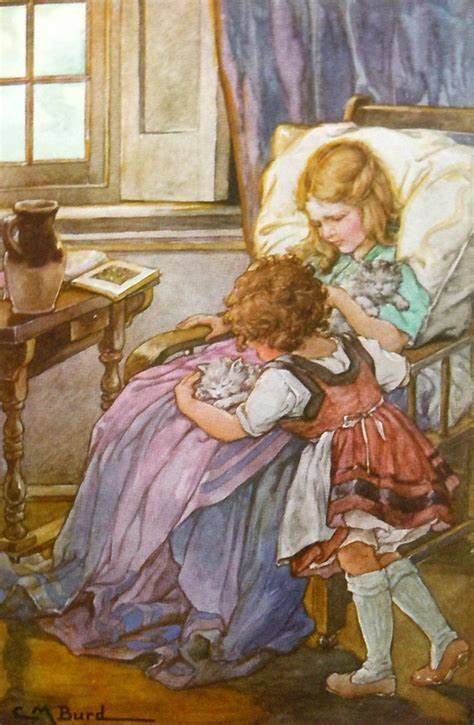
La tante d’Heidi n’est pas un personagge des plus aimables.
Dete était bien jeune à la mort du père d’Heidi et a pris soin d’elle pendant quatre ans. La première fois qu’on lui a offert un emploi à Francfort, elle a refusé, non par compassion mais par sens du devoir. Pour être précis, elle souffrait l’idée d'être jugée par la société à cause d’un choix égoïste. Ceci est souligné par le temps qu'elle passe en s’excusant envers les villageois tout en montant sur l’alpage avec Heidi.
Il y a un autre élément essentiel à considérer, qui reviendra plusieurs fois dans la narration: le chalet perdu au sommet des montagnes représente un endroit éloigné par la société, où serait enfermé une partie de soi qui n’est ni acceptée ni intégrée. C’est exactement ce qui est passé à le grand-père et Dete génère la même dynamique avec Heidi: Heidi n’est rien d’autre que le devoir à qu’elle a été appelée et dont elle veut fuir, qui l'oblige à vivre dans quel petit village et à sacrifier ses opportunités de carrière. Il faut s’en débarrasser, où personne ne peut la voir.
Dès qu’elle apparaît dans cette histoire, elle est toujours en train de satisfaire un besoin personnel. Elle laissa Heidi chez son grand-père bien consciente de sa réputation, elle revint la récupérer puis la ramena à Francfort, lorsqu’elle vit une opportunité de gagner de l’argent. Elle essaie de dissimuler ses mauvaises intentions en prétextant qu’Heidi ait besoin d’une éducation. Il s’agit d’une opportunité que personne ne pourrait refuser. Nous nous rendons compte qu’elle se désintéresse du bien être d’Heidi à Francfort, même lorsque cette dernière risque sa vie par nostalgie.
Il faut analyser chaque personnage en rapport avec son personnage spéculaire. Le premier c’est le rapport entre le grand-père et Dete, car ils émettent une critique à la société.
Les deux sont les tuteurs d’Heidi et ils ont abandonné le petit village, l’un pour fuir dans les montagnes (rejet complet) et l’autre pour embrasser une société encore plus grande et complexe. Cependant, la croissance narrative de son grand-père l'amène à faire la paix et à se réconcilier avec la société. En revanche Dete se perd dans le système capitaliste avide (juste en contradiction avec la montagne comme endroit des sentiments), représenté par Francfort. Ils montrent deux choix différents et opposés à la société: le rejet complet ou l’immersion totale.
Heidi, de son côte, représente la pureté et la joie non contaminées par les problèmes des adultes. Cette force l’accompagne dans toutes ses aventures et grâce à elle Heidi change la vie de ceux qui les entourent. Elle touche l’enfant en chacun de nous.
Le personnage qui s’oppose à la force vitale d’Heidi a été interprété par Mademoiselle Rottenmeier. Elle met en avant des traits de caractère uniquement négatifs en opposition à la force de bien.. Elle considère Heidi comme une sauvage et essaie de lui donner de la discipline à travers la sévérité. Heidi perd complètement la joie de vivre, jusqu’à risquer la mort par dépression. La seule façon pour elle d’avoir sauvé la vie c’est de la ramener sur l’alpage. Cela représente la force de guérison de la nature et ce thème est exploré aussi par le personnage de Klara et comment elle récupère l’usage des jambes.
Un autre sujet qu'il faut analyser c’est le rapport entre Peter et Heidi.
Peter nous donne une vision de la vie dans la montagne opposée à la vision de Heidi. Avec Heidi nous apprenons à apprécier la vie dans la nature, bien qu’elle ne soit pas toujours merveilleuse. La montagne peut se révéler un vrai cauchemar, car elle n’est pas seulement les fleurs et les couleurs, mais aussi l’anàlphabetisme, le travail des enfants et la solitude. Peter n’est pas capable de lire ni d'écrire, il a commencé à travailler à l'âge de cinq ans et il souffre terriblement de la solitude.
Il y a aussi beaucoup de personnages positifs dans la grande ville, comme toute la famille de Klara et Sebastian. Cela signifie que la société n’est pas seulement un endroit terrible, il y a aussi gens de bon cœur. De plus, les possibilités économiques de la famille de Klara ont pu atténuer les problèmes engendrés par la pauvreté et donner à Heidi et sa famille une vie meilleure.
Pour conclure, j’ai vraiment adoré le livre et il est devenu un de mes livres favoris de tous les temps. Comme Heidi j’adore la montagne et je souffre de la même nostalgie. La description faite par Johanna Spyri m’a rappelé mon enfance et j'espère qu’elle vous fera la même impression.
8 notes
·
View notes
Text
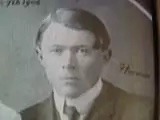
This is the only photo of Charles Tritten I’ve been able to find so far. I know he was Swiss and a Francophone.
He translated the Heidi into French and then created sequels to it based on some of Johanna Spyri’s other novels. The publisher then put them out in French simply using Spyri’s name.
I’m fascinated with these novels, and one thing I really want to explore is the ways in which Tritten’s unauthorized works were unethical. Obviously the plagiarism is messed up, as well as using her name. But I wonder if it was explicitly breaking with a stated intention of Spyri’s that there never be more Heidi stories. I also wonder how relevant it is that Spyri herself may have been building on the 1830 story, Adelaide: The Girl from the Alps (Adelaide, das Mädchen vom Alpengebirge).
3 notes
·
View notes